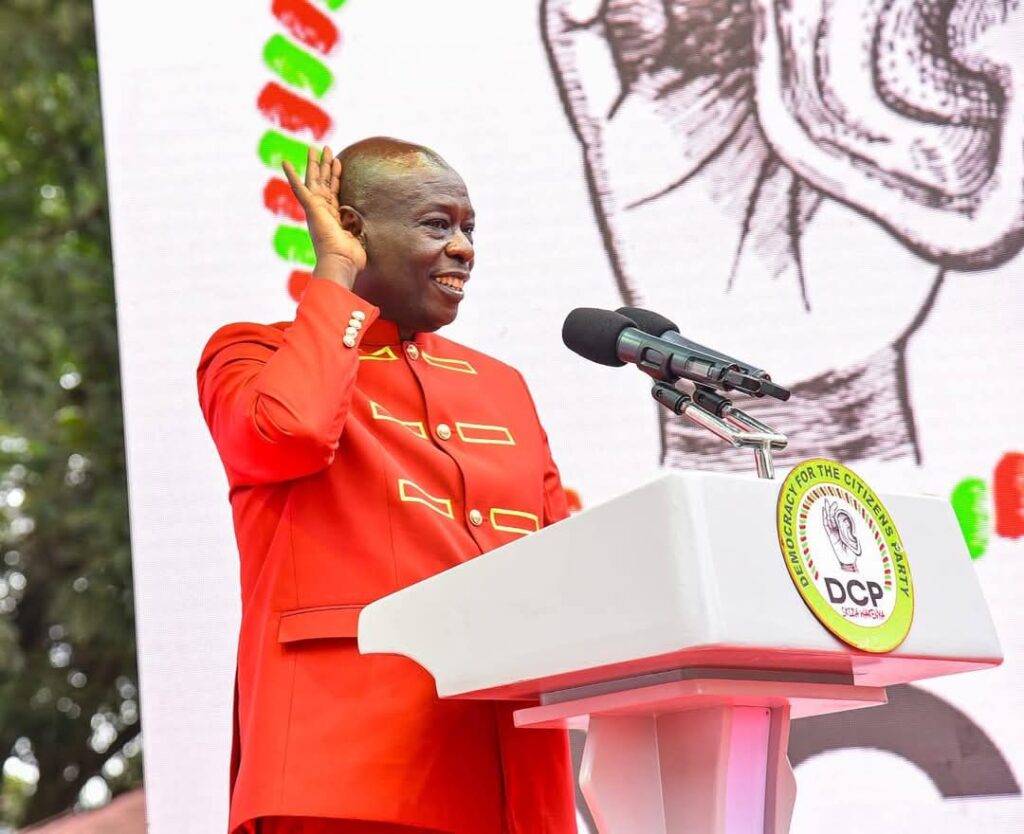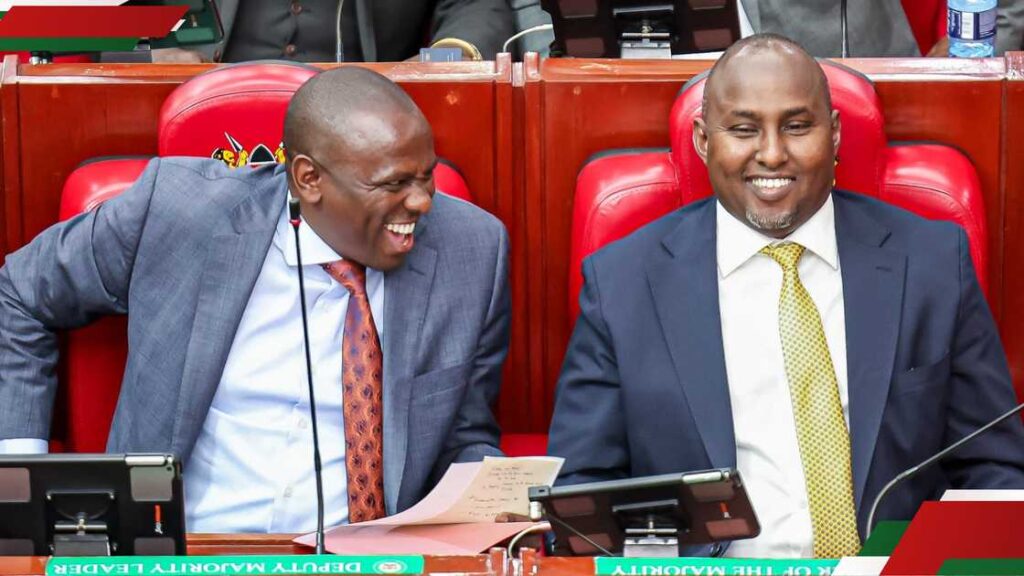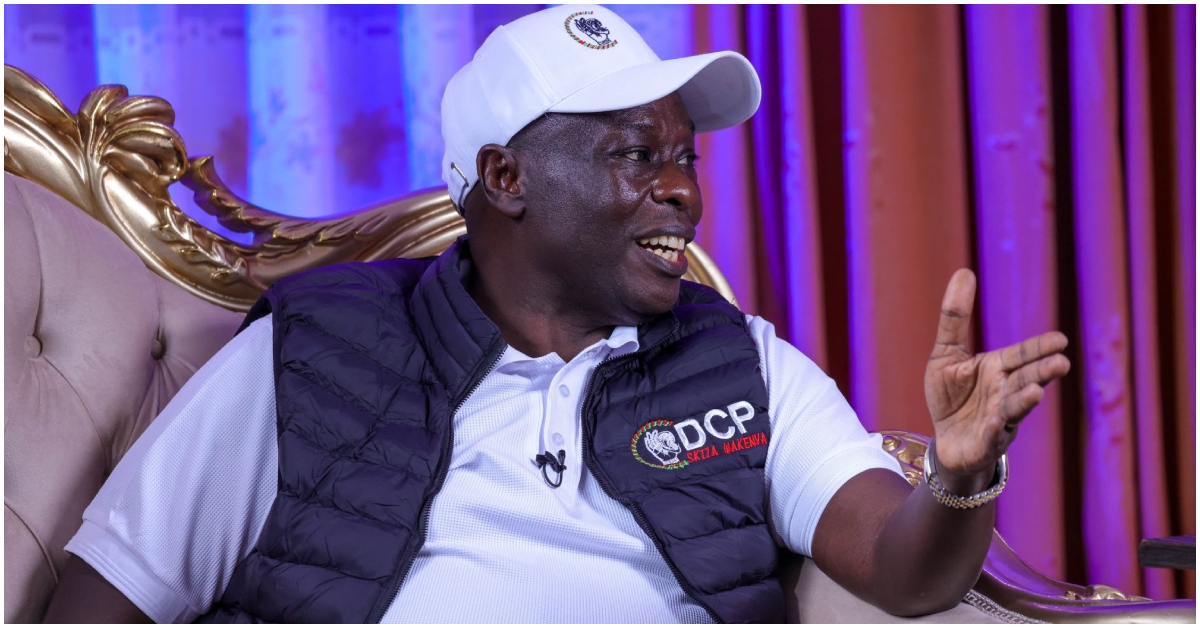In an emotionally charged session in Parliament on Tuesday, 27th May, 2025 MPs had a scathing attack on Gachagua over his remarks when he said in a recent interview, “If IEBC tries to mess with the elections then there will be no country here, 2007 will look like a Christmas Party.”
Lawmakers united in a rare moment of bipartisan outrage, rallying behind a motion by Suna East MP and Minority Whip Junet Mohamed. The motion condemned former Deputy President Rigathi Gachagua for what was described as dangerous, incendiary rhetoric reminiscent of the darkest chapter in Kenya’s democratic history the 2007/2008 post-election violence.
The House stood on edge as Junet Mohamed warned that Gachagua’s recent utterances were not just provocative, they were a direct threat to national unity and public order. “These words are not accidental,” Junet declared. “They are calculated. They are reckless. And they are playing with fire in a country that still bears the scars of ethnic cleansing.”

Members of Parliament, visibly incensed, called for the immediate arrest of Gachagua, accusing him of issuing inflammatory statements that could plunge the nation back into ethnic hostilities. Many evoked the grim memory of the 1,000 lives lost and over 600,000 people displaced in the 2007/2008 post-election bloodshed.
Gachagua, in a recent interview, had likened the potential fallout of a rigged election to a “Christmas party” a comment widely perceived as a horrifying trivialization of a national tragedy. The statement, seen as mocking the pain of victims and survivors, sparked outrage across both political divides.
“This is not just a man with a black heart,” thundered Majority Leader Kimani Ichung’wah. “It is a man with a very dark soul. To equate a national nightmare, the butchering of our people to a Christmas celebration is unconscionable. This is evil masquerading as leadership.”

Ichung’wah accused Gachagua of inciting the youth, weaponizing ethnic identity, and targeting opponents through intimidation and violence. “He urges his supporters to storm clubs, to silence artists, to destroy businesses. This is not dissent, it’s domestic terrorism. And it must be stopped.”
Rarieda MP Otiende Amollo called on Parliament to initiate a constitutional petition to permanently bar Gachagua from public office, describing his conduct as a threat to the integrity of Kenya’s democratic institutions. “We impeached him once,” Amollo reminded the House. “We did so because he defiled the dignity of the office. Now, we see that same disdain escalating into a campaign of hate. The line must be drawn.”
Junet Mohamed reiterated the urgency, invoking the Constitution and the memory of past national trauma. “Article 37 grants us the right to assemble, protest and picket but that right ends at the edge of violence. No leader, including the former Deputy President, has the right to incite bloodshed. Our Constitution is a shield not a sword.”
He cited the National Cohesion and Integration Act, particularly Section 13, which criminalizes hate speech and incitement to violence. “When leaders stand on podiums and call for confrontation, they don’t speak for the people, they speak against the Republic. ‘Never again’ must be more than a slogan. It must be the oath of this House.”
The debate drew emotional contributions from across the chamber.
Uasin Gishu Woman Representative Gladys Boss Shollei questioned the NCIC’s silence and inaction. “Why has he not been arrested? Where is the law? On behalf of the people of Uasin Gishu, we are offended. There can be no double standards in justice.”
South Mugirango MP Sylvanus Osoro delivered a searing critique, accusing Gachagua of exploiting his ethnic identity for political gain. “Every time he opens his mouth, it’s about one village. That’s what I call ‘village-isis.’ It’s a dangerous sickness, and it’s eating into our national soul.”
He questioned Gachagua’s fitness to lead, stating, “It’s time we advised him to see a psychiatrist. These are not the words of a stable mind. This is a man drunk on power and blinded by bitterness.”
Not all voices in the chamber supported criminal action. Funyula MP Wilberforce Oundo struck a cautionary note. “The danger of killing the messenger is believing you’ve killed the message. Let even the devil speak, for we must learn, lest we repeat our worst mistakes.”
Still, the overwhelming mood in Parliament was one of defiance against the normalization of hate speech. MPs demanded that the NCIC, the Inspector General of Police, and other relevant agencies act swiftly and decisively.
The NCIC, which has already summoned Gachagua to explain his remarks, expressed concern that his statements could destabilize national cohesion. Yet the former DP has openly dismissed the summons, an act that many MPs see as not just contempt, but a dangerous defiance of constitutional order.
“This is how it begins,” warned Junet. “One man’s recklessness becomes a movement’s fire. If we do not act, history will judge this House not just by what we said but by what we failed to do.”



